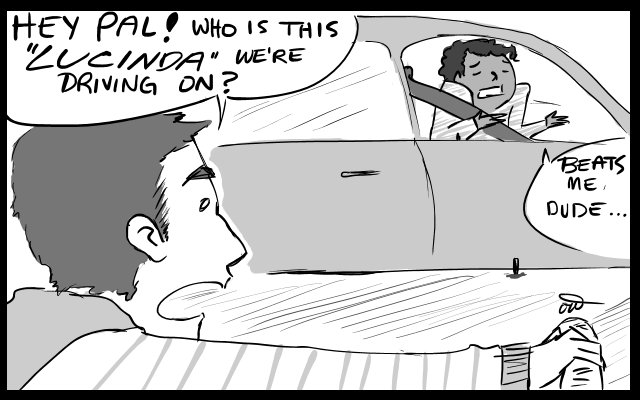Street names hold deep history
January 13, 2013
Who is Annie Glidden, anyway?
You know, of Annie Glidden Road? What about Lucinda? Ever since moving to DeKalb to attend NIU, I have wondered who these two women were and why they were important enough to have busy streets named after them.
I say this because I think part of having a meaningful college experience is being at least somewhat acclimated to the history of your college town.
I mean, it is our home away from home for the time we are here learning, and you will want to be able to answer the questions of visiting friends and relatives. Besides, not all learning has to take place in the classroom.
First of all, it is important to know who Joseph Glidden was. DeKalb, Ill., is known for being the birthplace of the first patented barbed wire, and Glidden was the farmer who designed and manufactured this popular fencing addendum in 1873.
Glidden was also quite an active community member. If you have seen the show “Gilmore Girls”, I would say he was like the Taylor Doose of DeKalb in that he contributed much to his community.
Fencing wire and farming may not seem like glamorous points of historical significance, but for DeKalb, they are important. Glidden’s patent brought in a lot of money for the town, as we can see in the Glidden Homestead on Lincoln Highway and especially in the home of his business partner, Isaac Ellwood.
Furthermore, barbed wire is such a commonplace item, now used everywhere, it is pretty cool to know it started here.
Lucinda Avenue contains most of the frequently visited buildings on campus, like the Holmes Student Center and the Village Commons. More than just a pretty name for a street, it was named after the second wife of Joseph Glidden. In fact, Glidden’s first models for his barbed wire involved Lucinda’s hair pins. The Gliddens gave a lot of money to what is now NIU.
This brings us to another famous Glidden: Annie Glidden Road was named because it is the street on which Joseph Glidden’s niece lived.
Aside from being related to the father of barbed wire, Annie was a successful farmer and prominent figure in the community because of her service to clubs, organizations and the public library in the 1890s. What I did not know is that the giant mural on the corner of Lincoln Highway and First Street is of Annie Glidden herself.
It is safe to say everyone who goes to NIU is familiar with Annie Glidden Road and Lucinda Avenue. I use them every day and wondered if other students were as curious as I to know who they were named after.
I see mysterious street names as suggestions to dig deeper and find out about the lives and actions behind them.
After all, a city does not have to have been a part of major past events, like battles or presidential debates, to be interesting. Usually we are proud and fascinated by our town’s history simply because it is ours.














